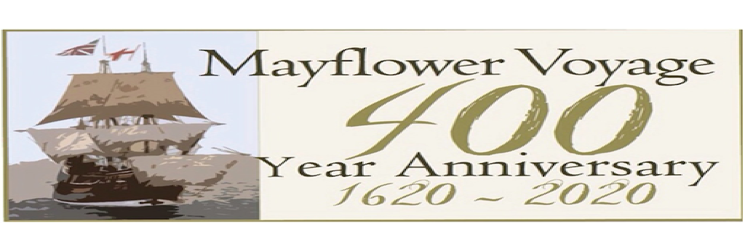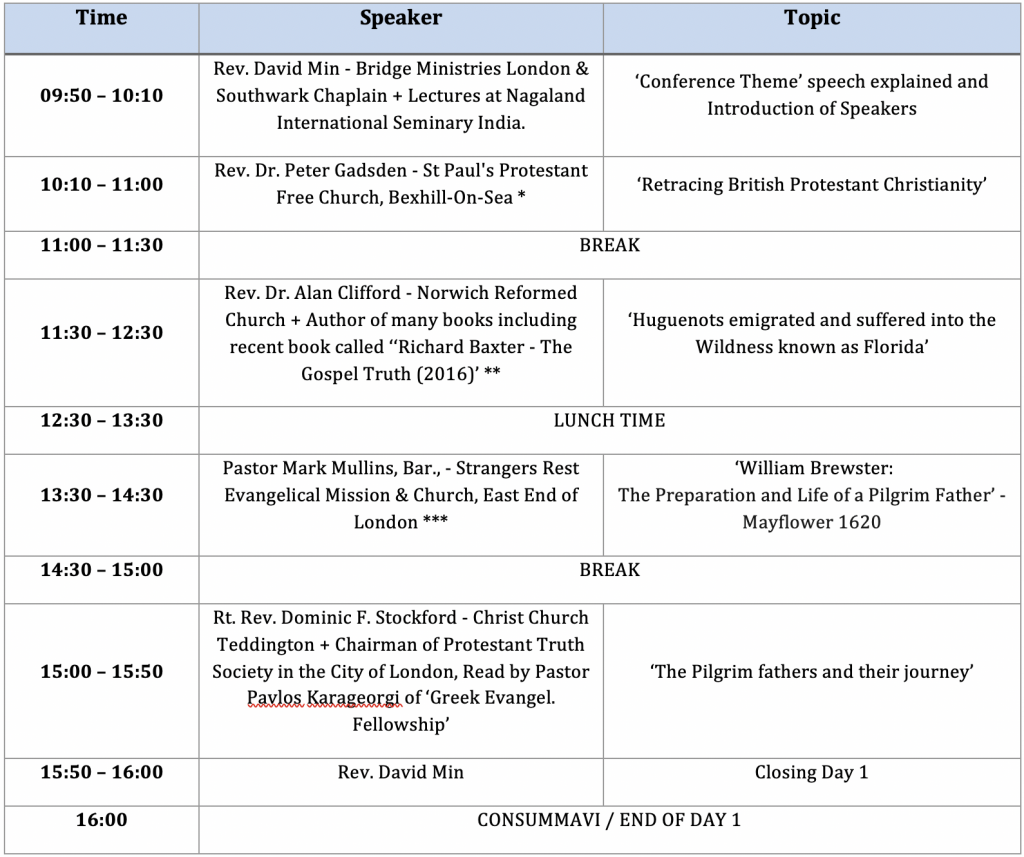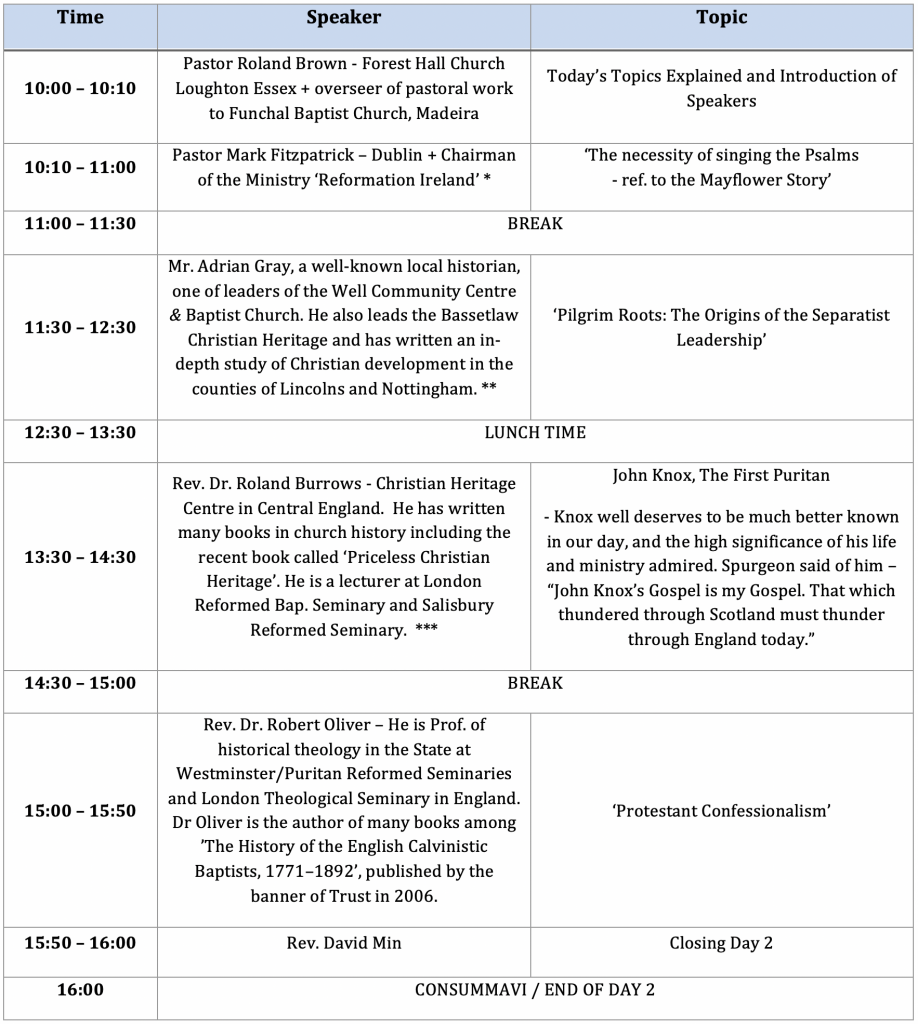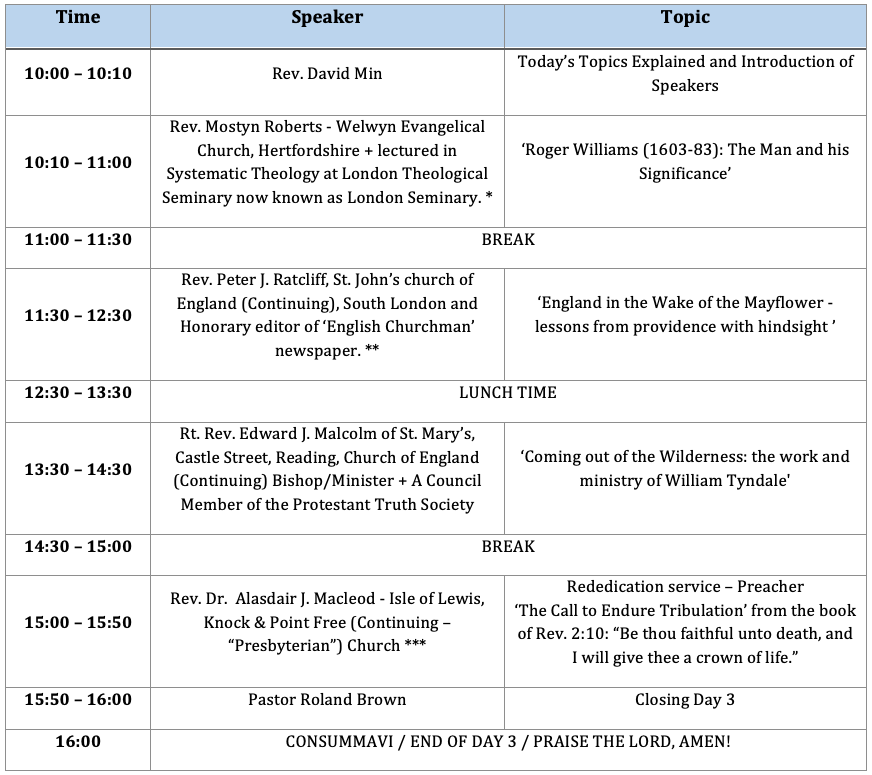
The 4th Essex Puritan Conference (PIC) 2020
29th – 31st October 2020 (Thursday – Saturday)
Join the Zoom Meeting:
https://us02web.zoom.us/j/4631581018?pwd=oeoDAU6FX1A
Meeting ID: 463 158 1018 / Passcode: 12345
Thursday 29 October 2020

Friday 30 October 2020

Saturday 31 October 2020

Contact
Rev. David Min
lmpc1999@yahoo.com or ruthmin40@yahoo.co.uk
07752 367 825 (UK) / +44 (0) 7752 367 825 (Overseas)
Remark-1:
* Sometime ago I read an internet article about specific puritans and it began as follows: No one knows who first brought Christianity to England or when. An old tradition suggests that Paul the apostle or one of his converts may have preached in Britain. By the seventh century most English people were at least outwardly Roman Catholics. In the following centuries some evangelical groups flourished, and some remnant of these groups may have survived in the sects which later opposed Romanism, such as the followers of John Wycliffe (sometimes called Lollards). I do not know who wrote it, but it is a vague as can be in almost every aspect.
** About 60 years before the Pilgrim Fathers, a much-neglected and forgotten story to learn from heroic Huguenots’
***William Brewster was one of the most important passengers on the Mayflower going on to be religious leader of the colony formed in the New World. Following brief studies at Cambridge, Brewster worked as clerk to one of Q. Elizabeth I’s most important -ambassadors, moving in the highest circles of the Elizabethan court, accompanying diplomatic journeys to the Low Countries, handling highly discreet political matters and witnessing at firsthand deep court intrigue. His direct experience of the Government’s power to persecute, of the Reformed Faith in the Netherlands and of the management of governmental affairs equipped him singularly for his later roles in the Pilgrim Fathers’ establishment of a new colony in America. This paper will examine Brewster’s life both before and after the Mayflower, seeing how God uniquely prepared him for a vital role in removing His people from persecution on the European continent and establishing them in America.
Remark-2:
* The singing of the Psalms is a rich heritage for God’s people in the history of redemption. We are reminded of this in many instances of church history. The experience of the pilgrims of the 17th century is no exception. As they crossed the Atlantic on their way to the “new world” the singing of the psalms was their comfort in the midst of all the dangers that surrounded them, and the unknown future that awaited them. Today’s church has, in the main, left behind its Psalm singing heritage; and therefore has also denied itself the rich blessing of biblical psalmody. We will look at some of the scriptural arguments for psalm singing and renew the call of the word of God to return to this God ordained means of grace and worship.
** ’Restless Souls, Pilgrim Roots’ He explores the true origins of the reforming and separatist attitudes that gave rise to the congregations at Scrooby and Gainsborough. He will show that Scrooby was not a sudden development involving a few people but the most radical result of a pattern that dated back to the 1520s.
*** November 2022 will mark the 450th anniversary of the death of John Knox. Sadly, Knox in our day has become a neglected Christian and national hero. His grave outside St. Giles Cathedral, Edinburgh, is now covered by a car park, with an almost unnoticeable flat stone marking the spot. Alongside ignorance of his great work, he has also suffered a great deal of unjust criticism, being referred to by some as, “Knox, the Knave,” or by others as, “That crafty little fox”. ” To view Knox rightly, is to see him as a marvelous individual – an eloquent preacher – and as one has said, “as a supreme visionary in an age of visionaries”. Knox was a man who under God, rose from obscurity, suffered as a galley slave, walked with kings and queens, pulled down strongholds, brought spiritual reformation to Scotland and helped to create what we now call the United Kingdom.
Remark-3:
‘Roger Williams went to New England with the Puritans in the1630s. Soon his separatist views fell foul of the establishment. He steadfastly insisted on freedom of conscience and the separation of church and state to an extent unacceptable to the Puritan leaders in Boston. Banished from Massachusetts, he founded the state of Rhode Island and made it the first state in the world to be given a charter guaranteeing liberty of conscience. He was ahead of his time. What can he teach us today?’
** After the first “Pilgrims” left England in 1620, others followed but the vast majority of Puritans remained in England. In this address we will look at why this was and how it shaped certain very important events which followed. While the Providence of God is difficult to read and impossible to anticipate, we will try to draw out some conclusions so that even today we may know how to live “in the wake of the Mayflower”.
*** That believers must face all difficulties and trials by faith in Jesus Christ, even to death itself, as some of the Scottish Covenanters endured, and will find this faith vindicated in the abundant reward of eternal life from the Lord Himself.
